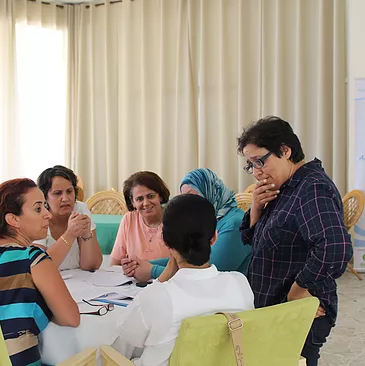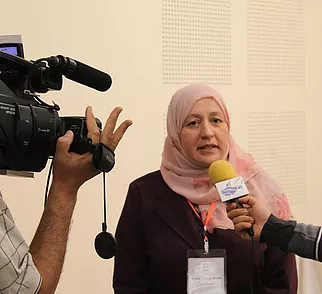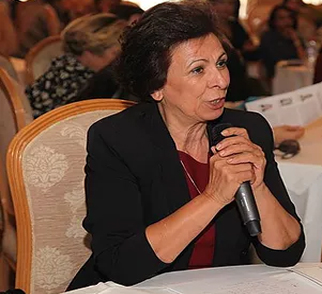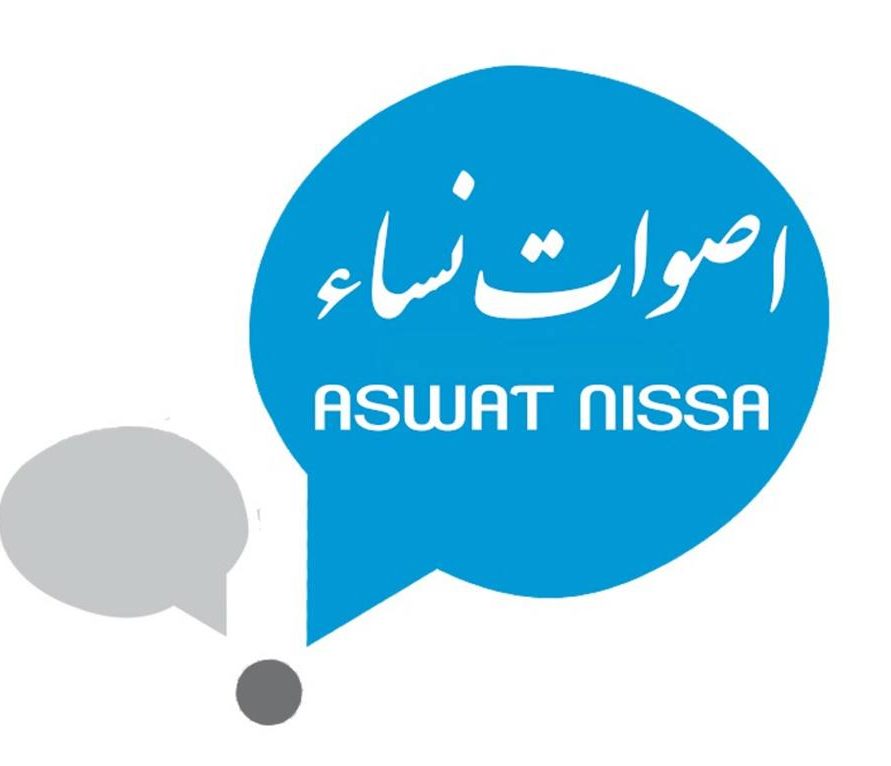Women’s Political Academy 2014-2015
Women’s Political Academy 2014-2015

The 2014-2015 Women’s Political Academy allowed 25 women from five different regions of Tunisia to acquire the necessary skills to play an active role within their political party. The political academy is tailored for potential female candidates at the next municipal elections. The goal is to give them the necessary tools to be elected. Politicians participated in fieldwork within their community and benefited from networking opportunities. This project was organized in collaboration with UN Women, Oxfam and the National Democratic Institute.
The mentoring offered by the Academy covered three aspects:
1) Capacity Building
2) Proximity and Data Collection
3) Networking and Exchanges

Capacity Building
To build the candidate’s capacities as politicians, the training sessions focused on:
- Leadership and confidence-building
- Local governance
- Gender-sensitive budgeting
- Territorial assessment
- Media relations
- Advocacy techniques
- Political communication
- Electoral campaigning
- Training of trainers
- Social responsibility of local governments

Proximity and Data Collection
This aspect of the Academy seeks to raise awareness amongst the participants about what are the priorities of their region’s women, and seeks to help them develop strong links with their community. To start, women had to investigate within their community to identify what are the population’s expectations towards the municipal council. Afterwards, they had to write a list of demands representing the priorities of the women of that region, and had to share these priorities with the political actors, the media and the inhabitants of their region during local assemblies. Assemblies and territorial assessments were led in five regions (Tozeur, Sfax, Bizerte, Tunis and Ariana).

Networking and Exchanges
The two “salons politiques” allowed the attendees to exchange in a non-partisan space with female actors of the political stage. Successful political figures from Europe and Africa shared their experience, their successes and their struggles. Important subjects such as youth engagement and work-family balance were addressed. These exchanges were quite inspiring for the Academy’s candidates and fears, such as the difficulty to conciliate a political and maternal role, were allayed.
